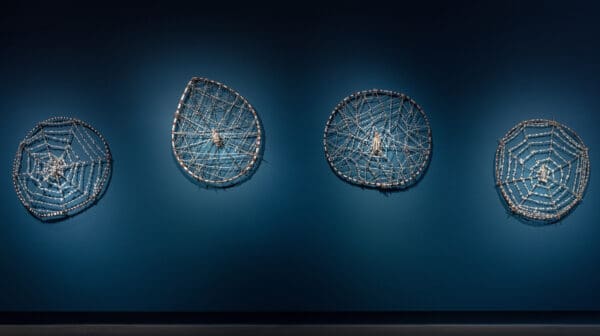
Piercing the veil
A new exhibition at Buxton Contemporary finds a rich complexity in the shadowy terrain between life and death.
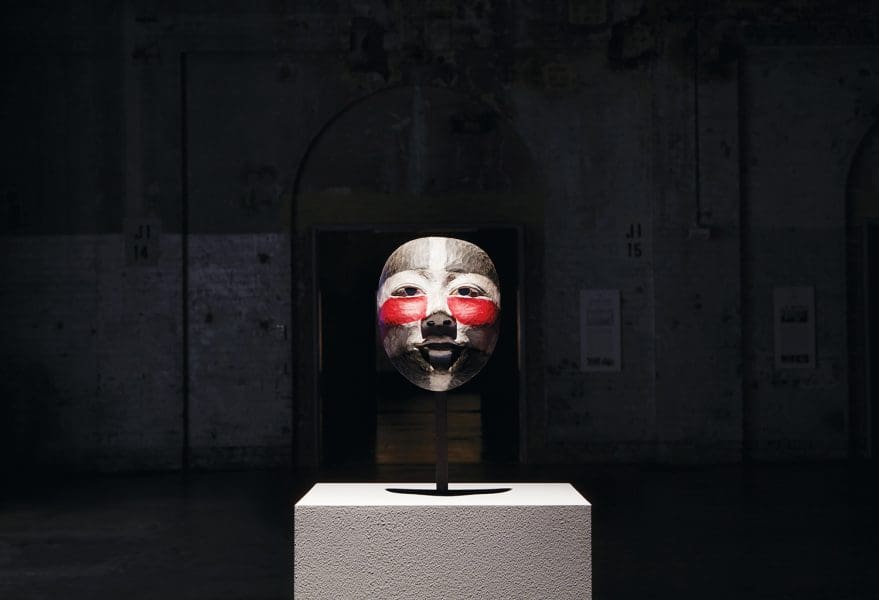
Khaled Sabsabi, Organised confusion 2014, 8-channel HD video installation, sound, wax dye on handmade wood mask, 24 Frames 2015, Carriageworks © Khaled Sabsabi. Photo: Zan Wimberley.
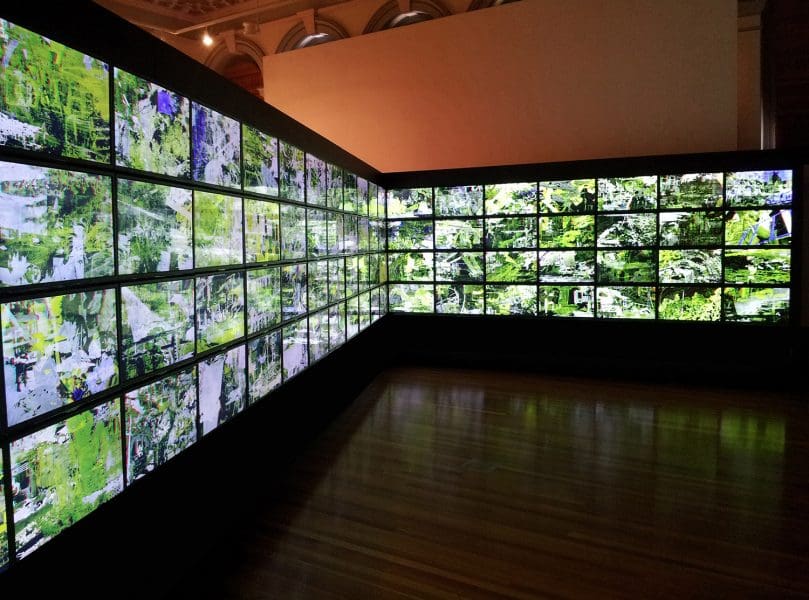
Khaled Sabsabi, 70,000 Veils 2004 – 2014, approx. 15,384 x 1,776 CM; 11MIN 40SEC (700SEC) each channel, 96 x channel HD video installation, audio, plastic, wood, 100 USB sticks and 40x3D anaglyph red cyan glasses. Collection of the artist. Photo: Kahled Sabsabi.
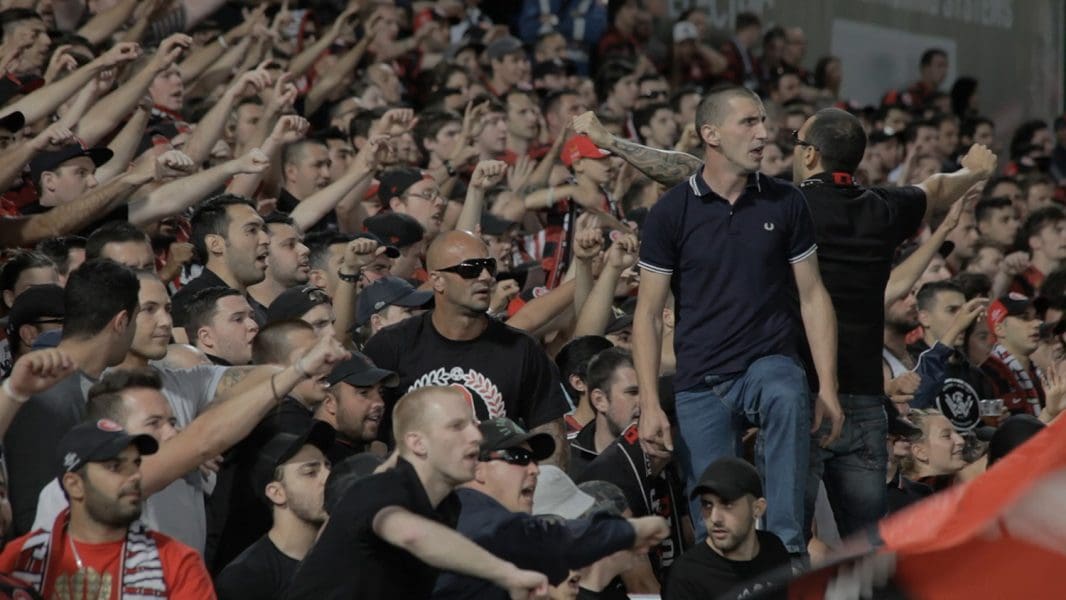
Khaled Sabsabi, Organised confusion 2014 (video still), 8-channel HD video installation, sound, wax dye on handmade wood mask. Art Gallery of New South Wales. Gift of the artist 2019. Donated through the Australian Government’s Cultural Gifts Program © Khaled Sabsabi.
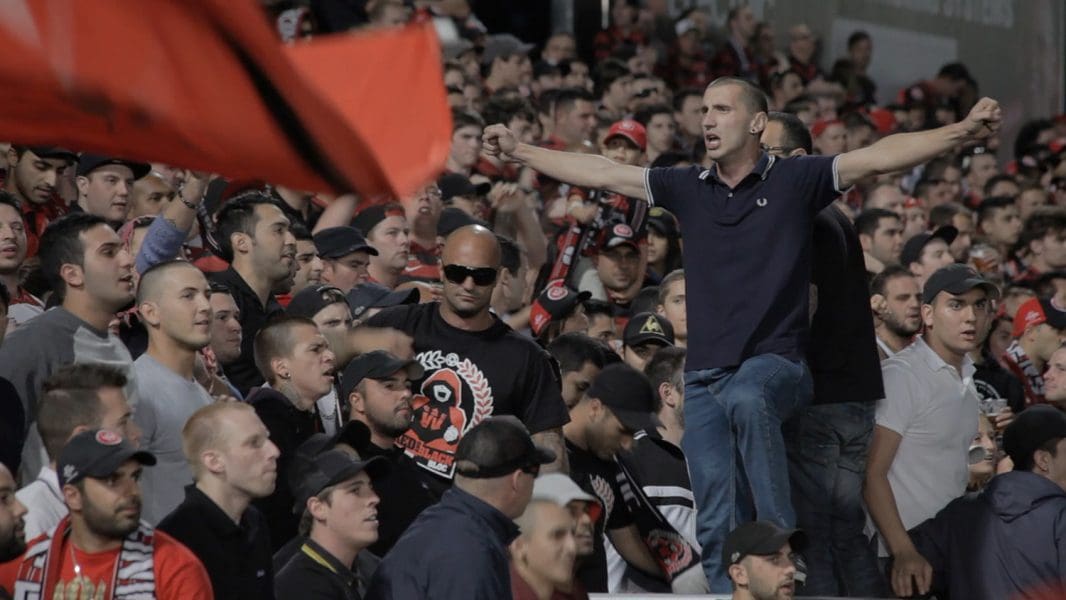
Khaled Sabsabi, Organised confusion 2014 (video still), 8-channel HD video installation, sound, wax dye on handmade wood mask. Art Gallery of New South Wales. Gift of the artist 2019. Donated through the Australian Government’s Cultural Gifts Program © Khaled Sabsabi.
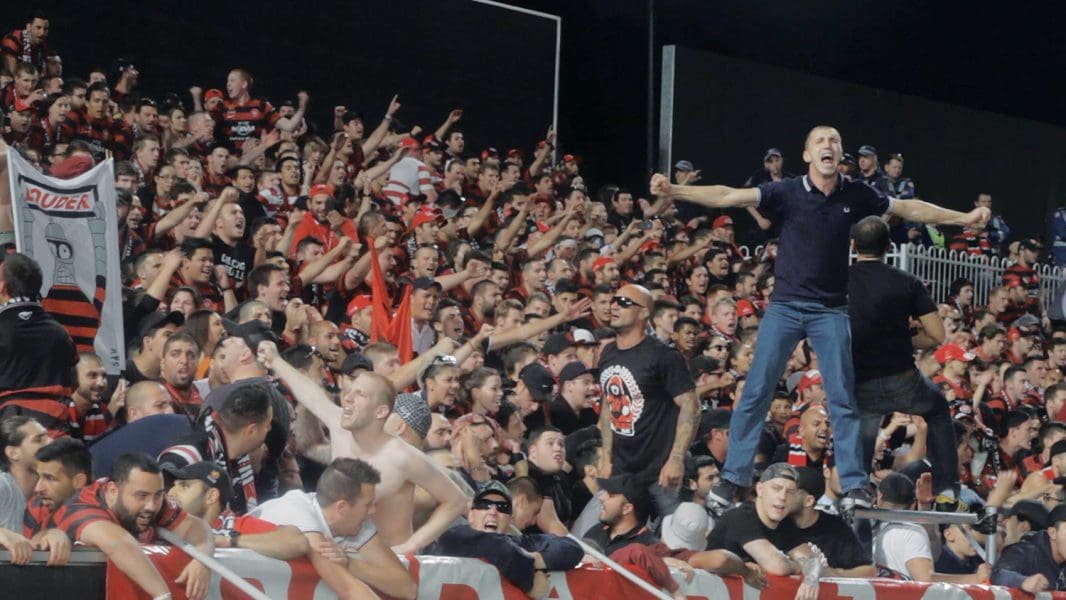
Khaled Sabsabi, Organised confusion 2014 (video still), 8-channel HD video installation, sound, wax dye on handmade wood mask. Art Gallery of New South Wales. Gift of the artist 2019. Donated through the Australian Government’s Cultural Gifts Program © Khaled Sabsabi.
Sufism, a form of Islamic mysticism, infuses the art of Tripoli-born artist Khaled Sabsabi. It can even be found in Organised confusion, his eight-channel 2014 video work looking at the fanaticism and, more importantly, the transcendence of crowds—specifically the Western Sydney Wanderers soccer club to which he once belonged.
The club’s fans have previously come to Sydney’s Carriageworks to see themselves in the video, while some others have felt threatened by this maledominated work. Sabsabi will remount Organised confusion as part of A Promise at the Art Gallery of New South Wales, an exhibition of four substantial pieces including new work.
“All of us as human beings, we look for time to reflect and contemplate, and to have that headspace and spiritual space,” says Sabsabi. “It doesn’t matter if people believe in the spirit world or not.”
Arriving in Australia in 1978 at age 12, Sabsabi’s family had fled Lebanon’s civil war. He encountered racism as a teenager in Western Sydney, but hip hop became an important means of expression, and he identified with the struggles of the Black Panthers for the liberation of African-Americans.
“Growing up in Australia as a migrant kid, having that spiritual faith as a Muslim, I’ve always been interested in the writings of [Afghan-born Sufi mystic, scholar and poet] Rumi, for example, and other scholars such as Malcolm X,” he recalls.
“It wasn’t until 2002, when I went back to Lebanon for the first time since migrating to Australia, that I came into contact with Sufism. To live amongst it and interact with it, it affected my work, in major ways, because it’s taught me to look beyond the two-dimensionality of making artwork.
“Artwork for me is not just about making a political statement—everything’s political as you know—but it’s the in-betweens that are important to me and to the audience. The great things happen on the margins or the borders.”
Organised confusion remains part of the entwinement of Sabsabi’s practice with everyday activities, a co-existence of art and sport, even though Sabsabi retracted his membership of the Western Sydney Wanderers a couple of years ago because he believed the club was treating the fans poorly.
He acknowledges divisions remain in football fandom along ethnic lines, and that there is violence, but he sought to capture something more transcendent. “Attending my first Wanderers game was a moment of hope for me, enlightenment in that it was diverse people of Western Sydney, side by side, cheering for the same team,” he says.
“I was seeing Croatians with Serbians, Syrians with Arabs. This was a really joyous moment for me, and this club is an important part of contemporary Australian society.”
A Promise follows Sabsabi’s exhibition at Perth Institute of Contemporary Arts, A Self Portrait. While the 2018 survey dealt with the individual across mediums, borders, cultures and disciplines, Sabsabi is also interested in the idea of collectivism and the importance of diverse voices: “A Promise is, for me, a moment of hope.”
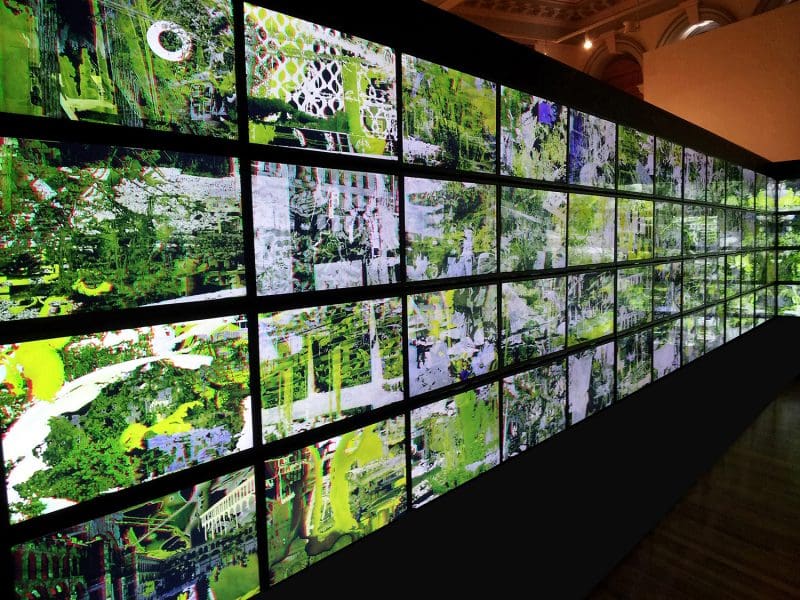
A major work in A Promise is 70,000 Veils, a 100-channel video from 2014. “My work is about giving and receiving, and the importance of that cycle,” he says.
Then comes a textile piece, a sacred sanjak ceremonial banner, which refers to the importance of history but also a blessing in Sufi philosophy. There are also paintings: Messiah Part A consists of 14 portraits; another acrylic oil stick work looks at borders, in particular the idea of reconstructing a wall.
More than 40 years since coming to Western Sydney, where he continues to live and work, Sabsabi sees hope in the continuities and challenges for Middle Eastern immigrants and refugees today in Australia.
“I speak to many people, from business owners to cab drivers to community members. Of course, relocation and getting your life together is always going to have its challenges.
“This is the effect of migration through human existence. Diverse communities now in Western Sydney, the minorities have become the majorities.”
This article was originally published in the May/June 2020 print edition of Art Guide Australia.
A Promise: Khaled Sabsabi
18 Jul 2020 – 2021
Art Gallery of New South Wales
Please note that the Art Gallery of New South Wales is open. With public safety in mind, physical distancing, limits to the number of people in the gallery and hygiene measures will be in place.